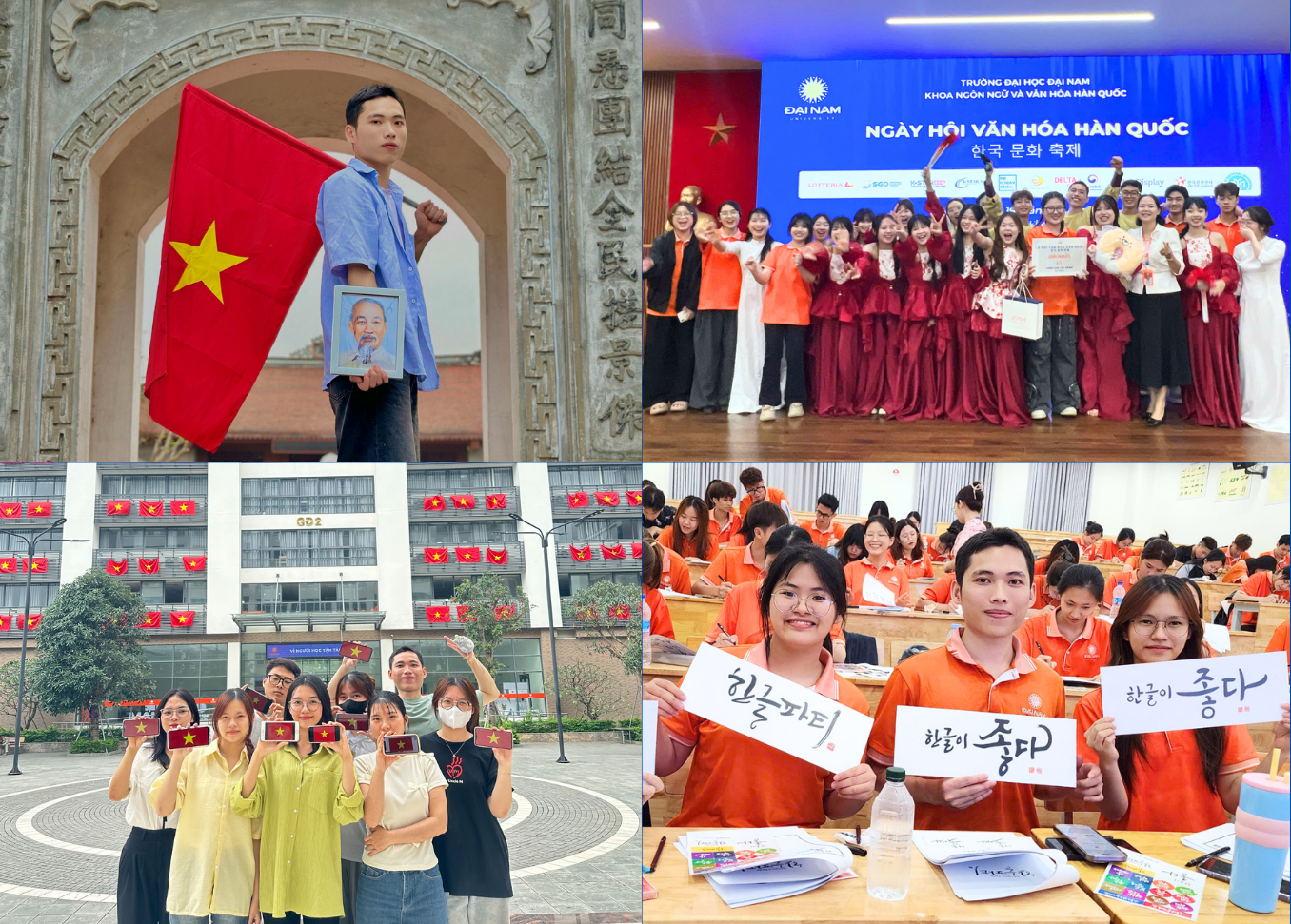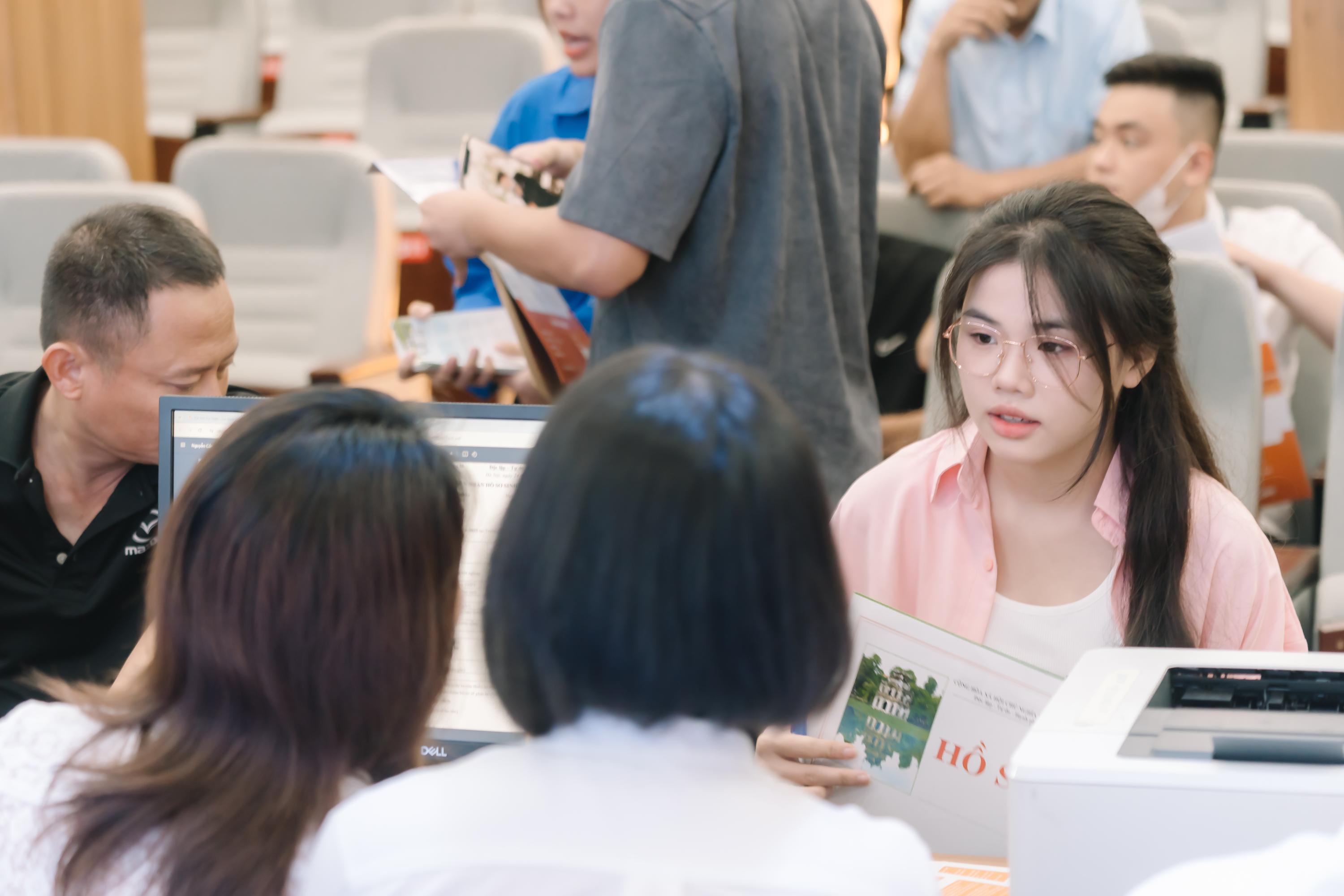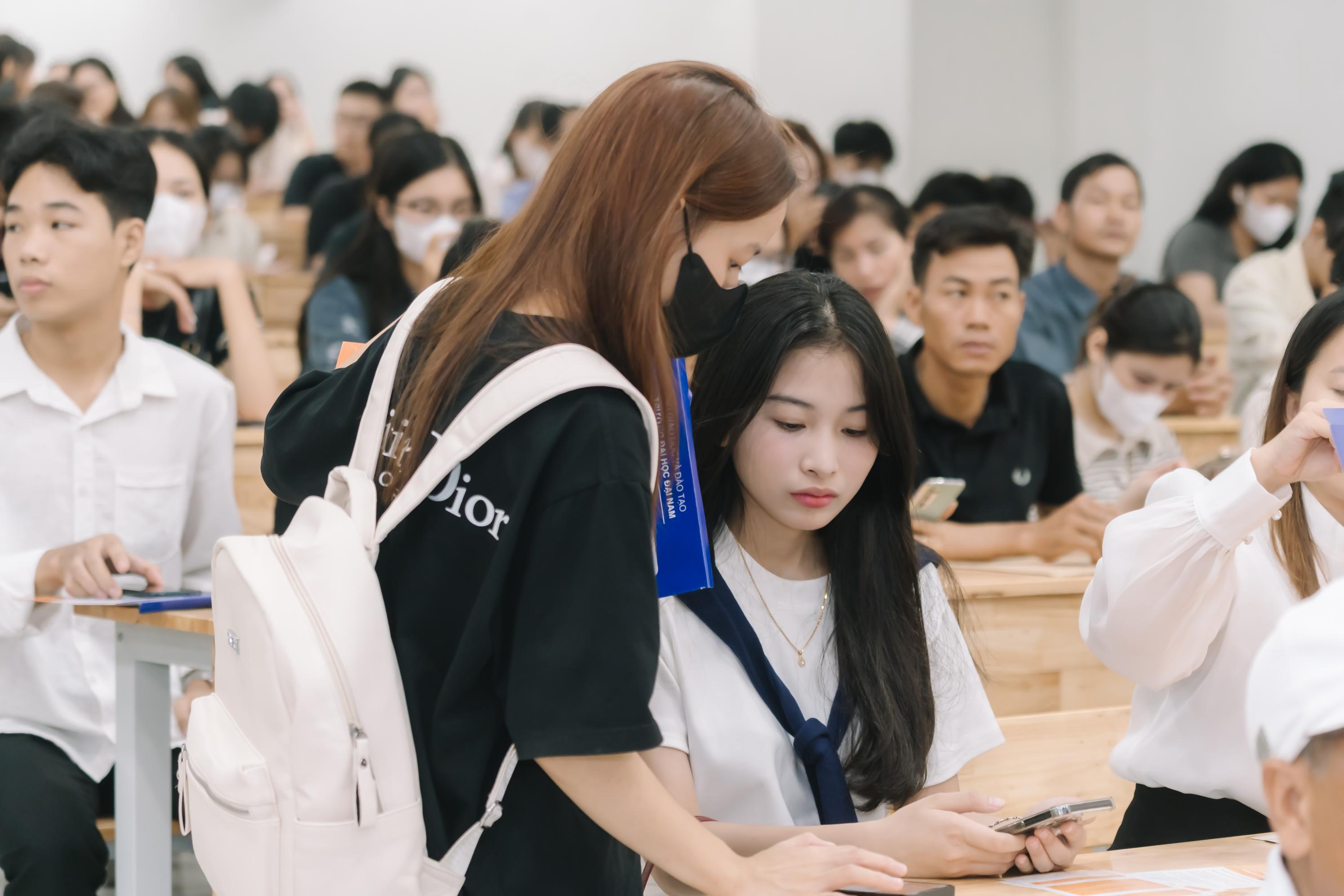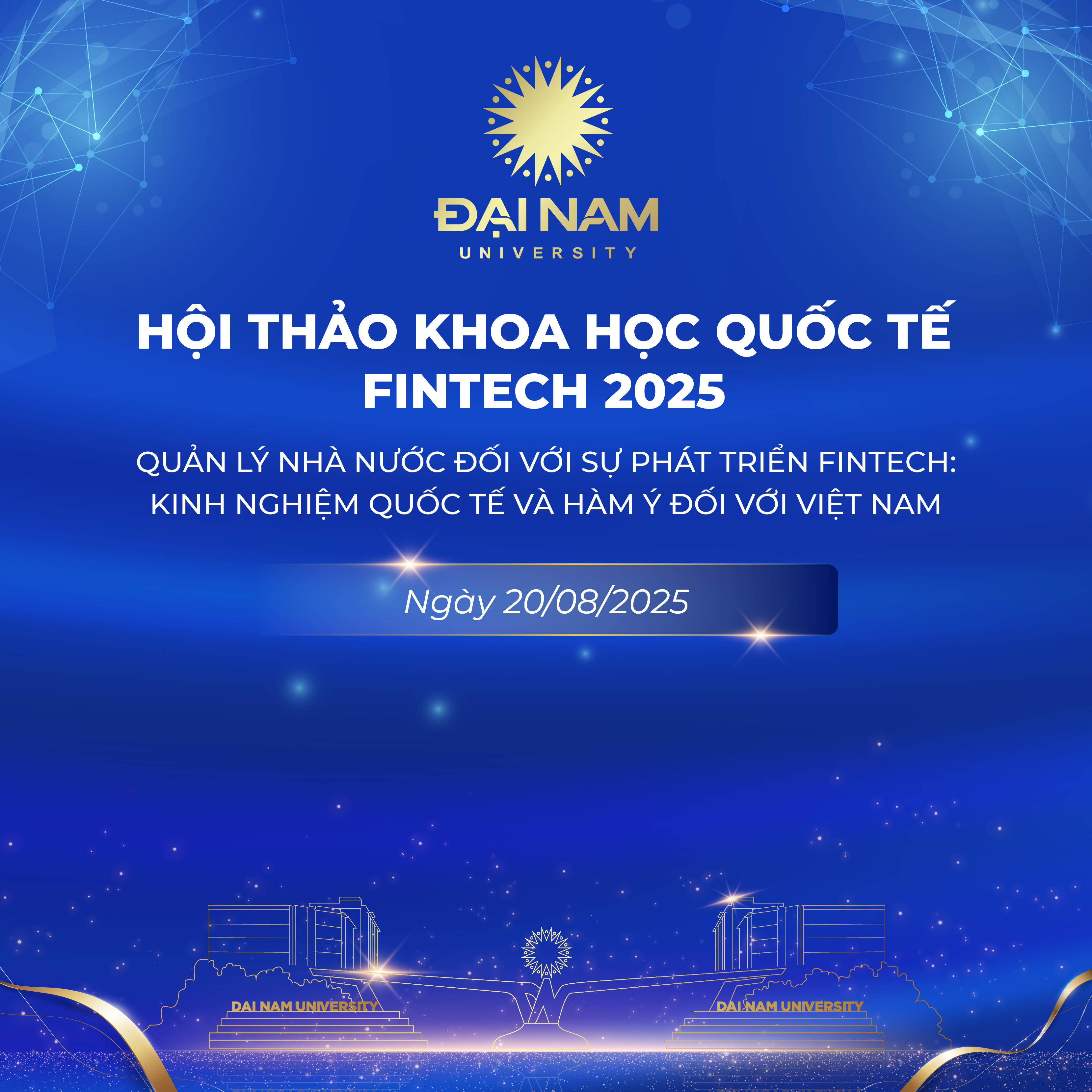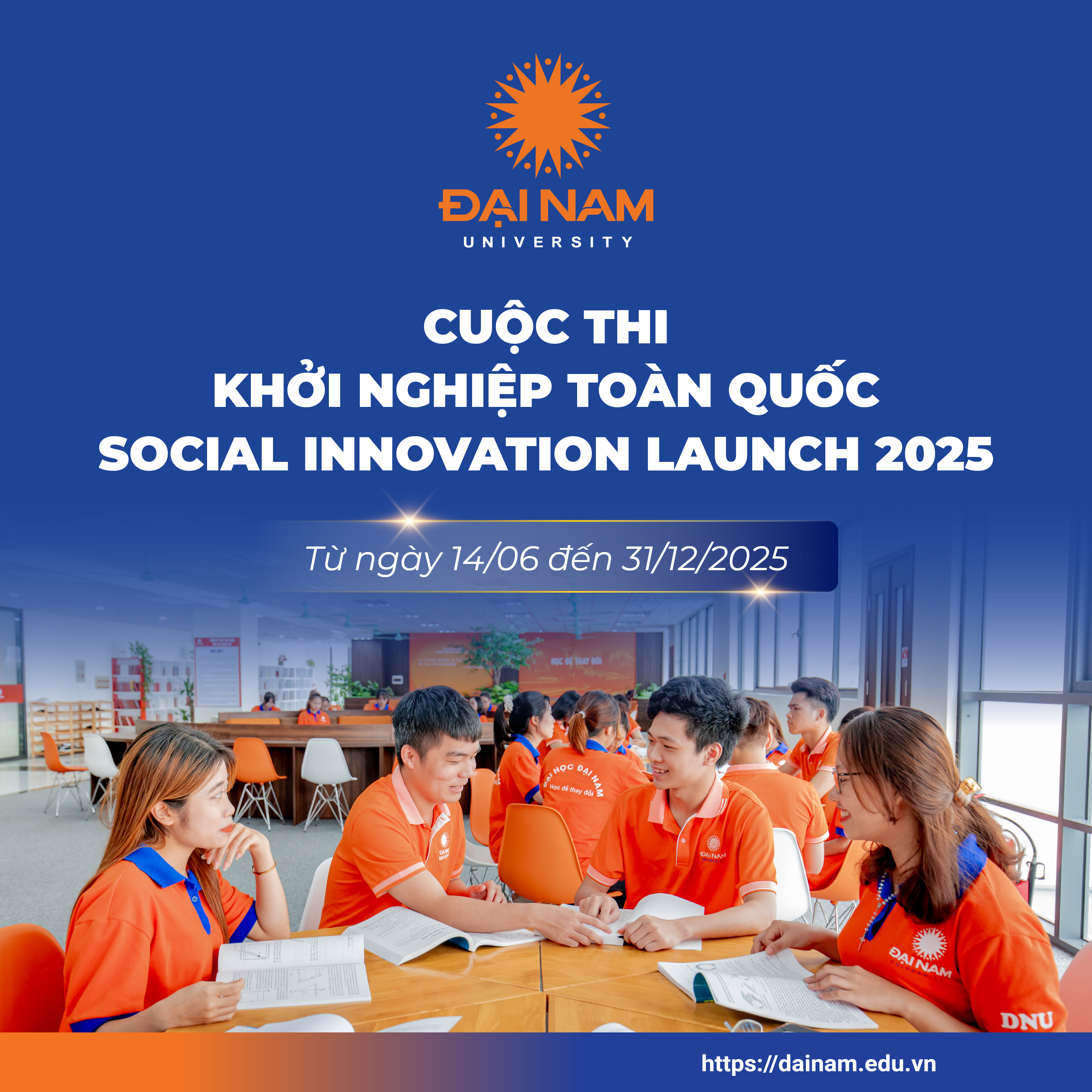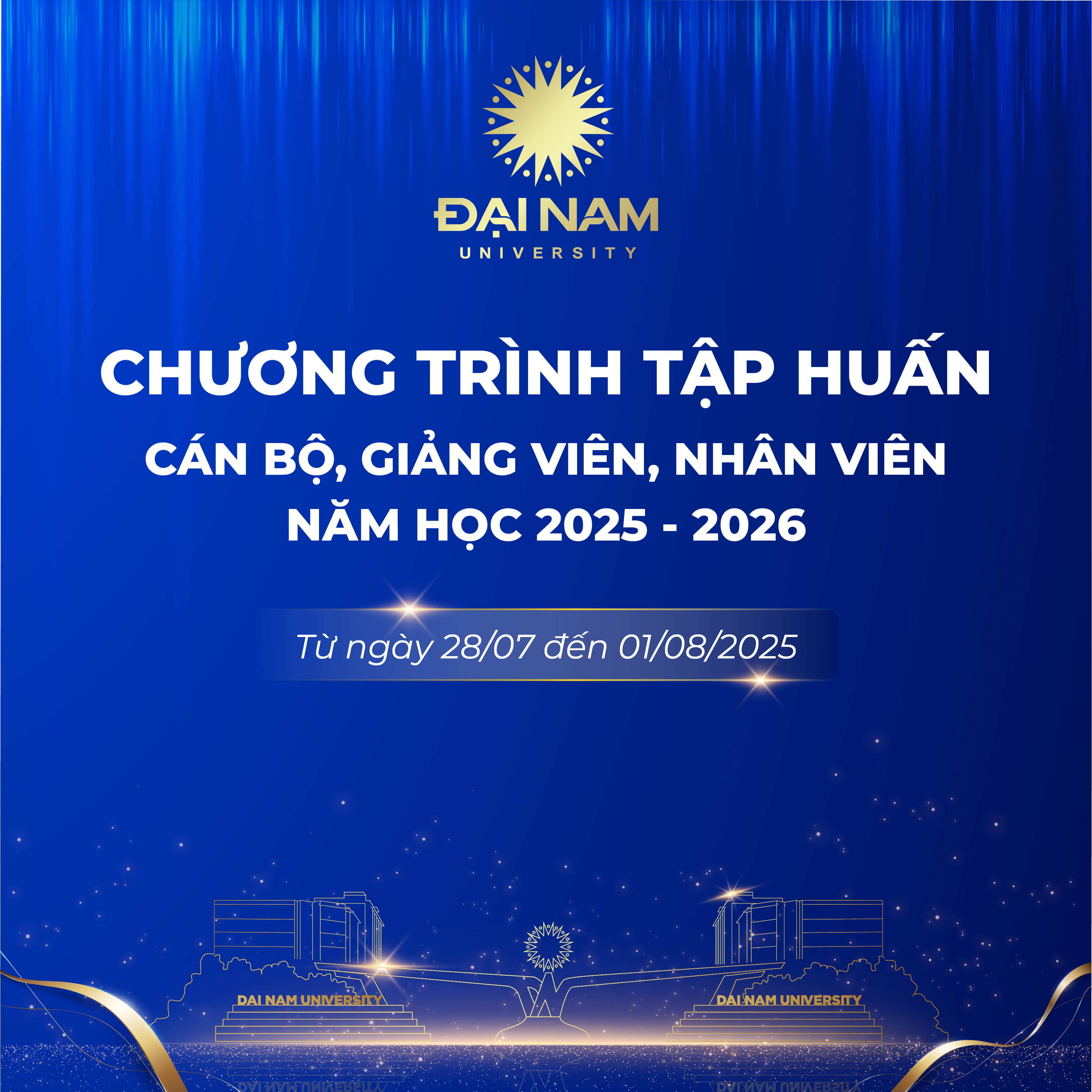Dai Nam University organizes a national conference on Japanese language teaching methods in the 4.0 era

On December 16, Dai Nam University organized a National Scientific Conference with the theme “Innovation in teaching Japanese and Japanese studies in the digital age”. The conference connected many prestigious domestic and Japanese research experts, bringing more than 30 scientific articles and lively and practical discussion topics, which are an important reference to improve the quality of teaching Japanese and Japanese studies in the era of technology 4.0.
Attending the program, on behalf of Dai Nam University - the host of the Conference, there were: Associate Professor, Dr. Pham Van Hong - Principal; Dr. Le Thi Thanh Huong - Vice Principal; leaders, staff, lecturers of Faculties, Departments, Boards, Institutes, and Centers.
The guests included: Ms. Okamoto Noriko – Second Secretary in charge of Culture and Education, Embassy of Japan in Vietnam; Mr. Vu Thanh Binh – Deputy Director of the Department of Science, Technology and Environment – Ministry of Education and Training; Mr. Nguyen Lan Trung – President of the Vietnam Linguistics Association; Ms. Fujigana Kaoru – Japanese Language Teaching Expert, Japan Foundation Center for Cultural Exchange (JF); Mr. Nguyen Duy Anh – Principal of GAG Japanese Language Academy, Japan.
In addition, there is the participation of scientists, researchers, staff, lecturers and students from universities and research institutes in Vietnam and Japan.
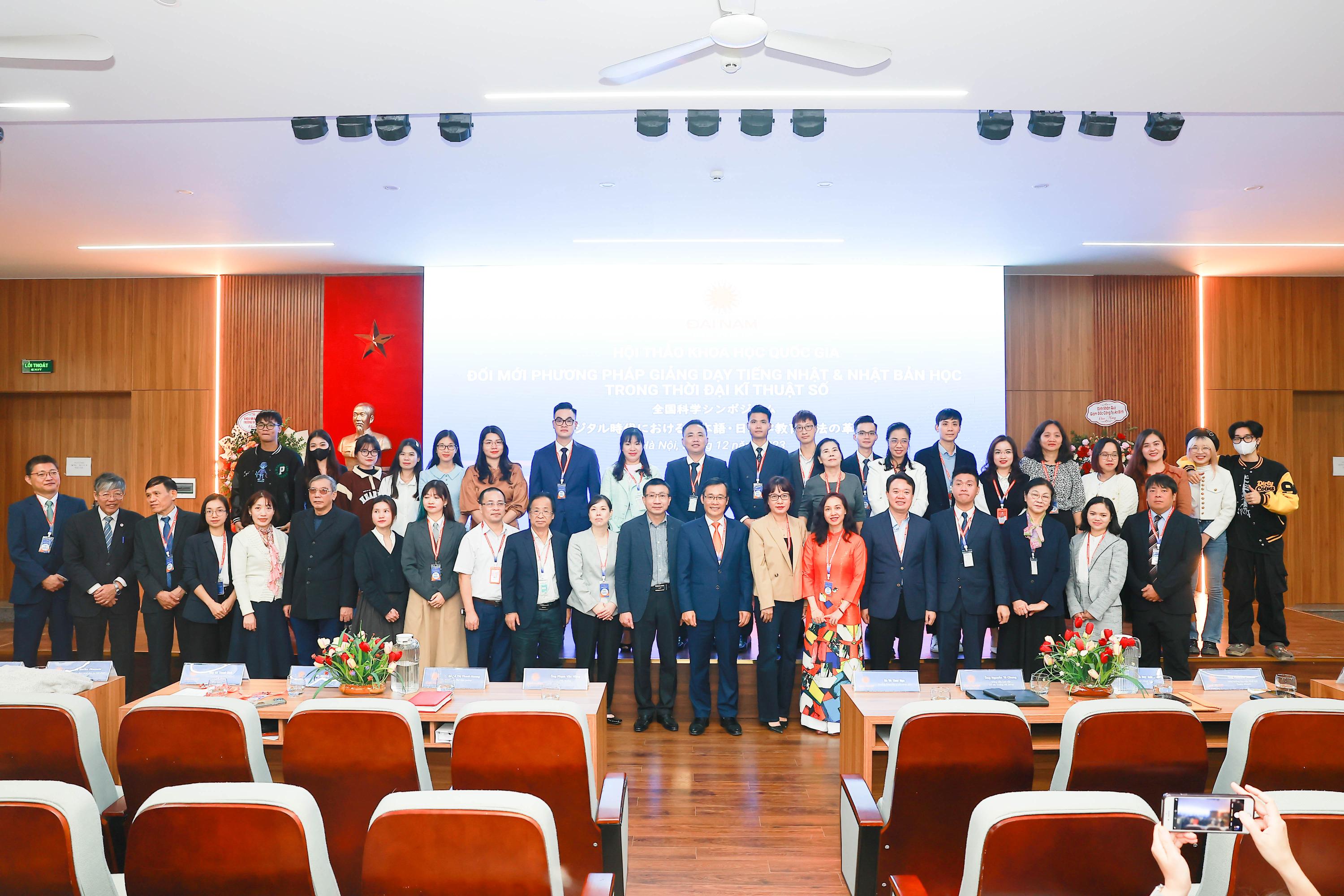
The workshop attracted the attention of many scientists, researchers, officers, lecturers, students from universities, research institutes, etc.
In his opening speech, Associate Professor, Dr. Pham Van Hong affirmed that the Workshop is a forum for exchanging academic knowledge, research and teaching experiences of Japanese language training institutions at home and abroad; an opportunity for scientists and research experts to discuss in depth the application of technology and innovation in teaching methods, meeting the requirements of the 4.0 technology era; at the same time, further expanding the cooperative relationship between Japanese language training institutions in Vietnam and Japan.
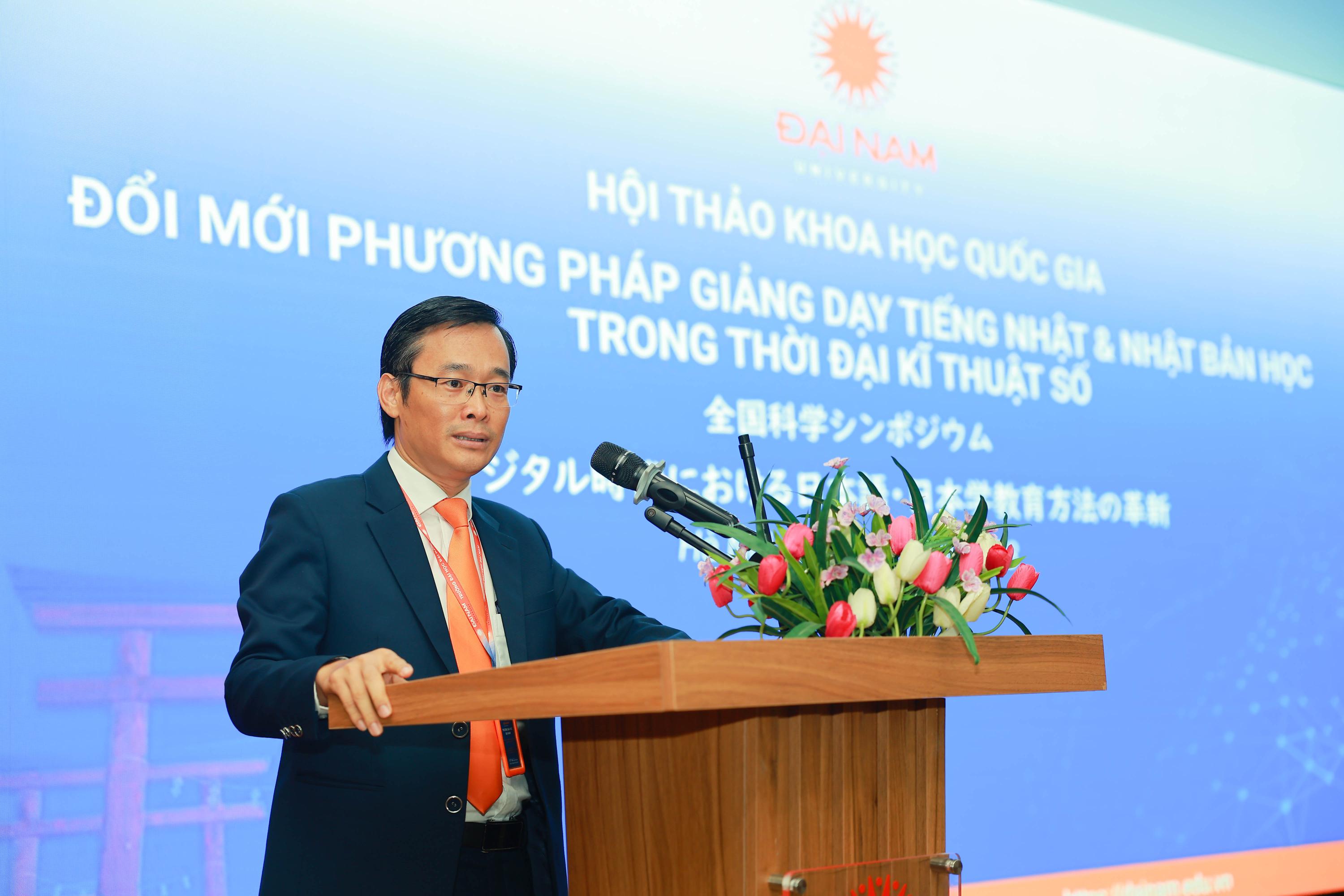
Assoc. Prof. Dr. Pham Van Hong delivered the opening speech at the Workshop.
Ms. Okamoto Noriko commented: The theme of the conference is very suitable and closely follows the current trend of the times and the exchange content will be useful for all participants. On the occasion of the 50th anniversary of the establishment of diplomatic relations between Japan and Vietnam, Ms. Okamoto sent her best wishes to Dai Nam University to continue to develop further, contributing excellent human resources in many fields, especially high-quality Japanese human resources. Hoping for further development of the Japan - Vietnam relationship according to the 50th anniversary theme "Hand in hand, towards the future, reaching out to the world".
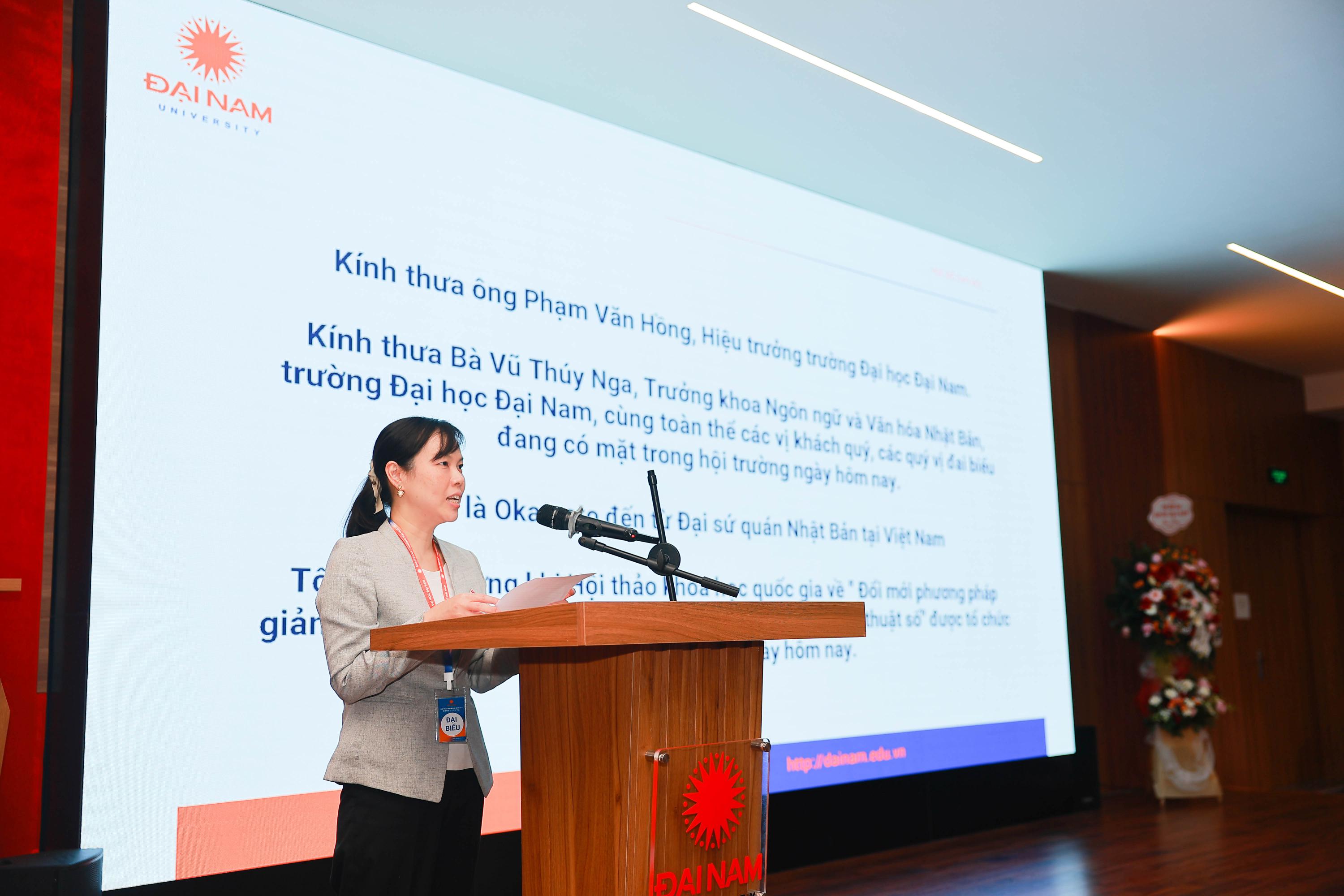
Ms. Okamoto Noriko affirmed: Dai Nam University as well as other universities across Vietnam have had many excellent Japanese language human resources trained and working in many different fields.
What to do to apply technology in teaching and learning Japanese at university?
Opening the plenary session with the presentation "From foreign language teaching and learning strategies to the implementation of Japanese teaching and learning at all levels in Vietnam in the 4.0 industrial revolution" , Associate Professor, Dr. Nguyen To Chung - Senior Lecturer of the Japanese Language Department, Hanoi University affirmed: The 4.0 revolution brings great opportunities to all fields, including education. To integrate and develop in the current digital age, countries are required to have high-quality human resources with good foreign language skills. Foreign language teaching and learning programs must be innovative, suitable for the digital revolution, meeting the needs of learners to learn anytime, anywhere, on any device.
Associate Professor, Dr. Nguyen To Chung offers some synchronous solutions:
Firstly, raise awareness among managers, staff, lecturers and students about the importance of digital transformation in training.
Second, innovate training programs, flexibly combine direct and online teaching; increase self-study time on digital platforms, and improve learners' self-study capacity.
Third, foster pedagogical skills, skills in using scientific technology in teaching, and creative teaching methods for the teaching staff.
Fourth, Develop a team of virtual teaching assistants to actively support the teaching process.
Fifth, Strengthen training cooperation with Japanese universities and enterprises in the region and the world; increase domestic and international internship programs for students.
Sixth, Improve database, build network infrastructure, advanced technology equipment, perfect legal system, apply management software and teach Japanese on digital platform.
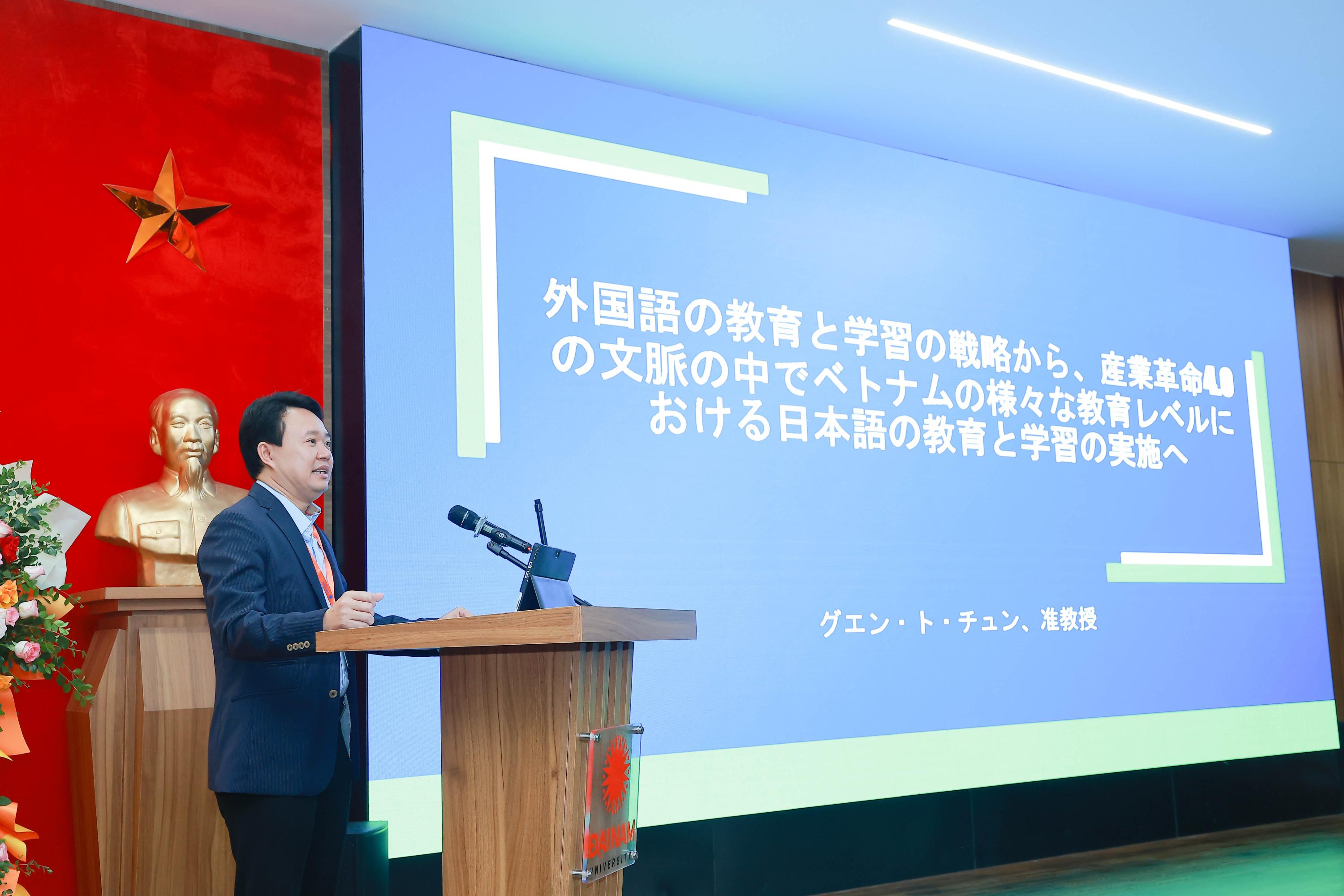
Associate Professor, Dr. Nguyen To Chung presented on the implementation of teaching and learning Japanese at all levels in Vietnam during the 4.0 industrial revolution.
Applying flipped lessons to teaching Japanese majors
At the program, scientists and researchers commented that the traditional educational method focuses on teachers lecturing - learners listening, taking notes; evaluating results through mid-term and final exams, etc., which makes the role of learners not be promoted, passive, dependent on teachers, and no longer suitable in modern times.
Accordingly, scientists have given their opinions on the application of the flipped classroom model in teaching Japanese majors. This method is considered superior to the traditional method because: Learners research lecture information at home, through reading documents, watching videos, etc. Conducting in-depth discussions and practicing in class, the lecturer plays the role of guiding and supporting students. This training method increases creativity, initiative, teamwork skills, research ability, and inspires students to learn.
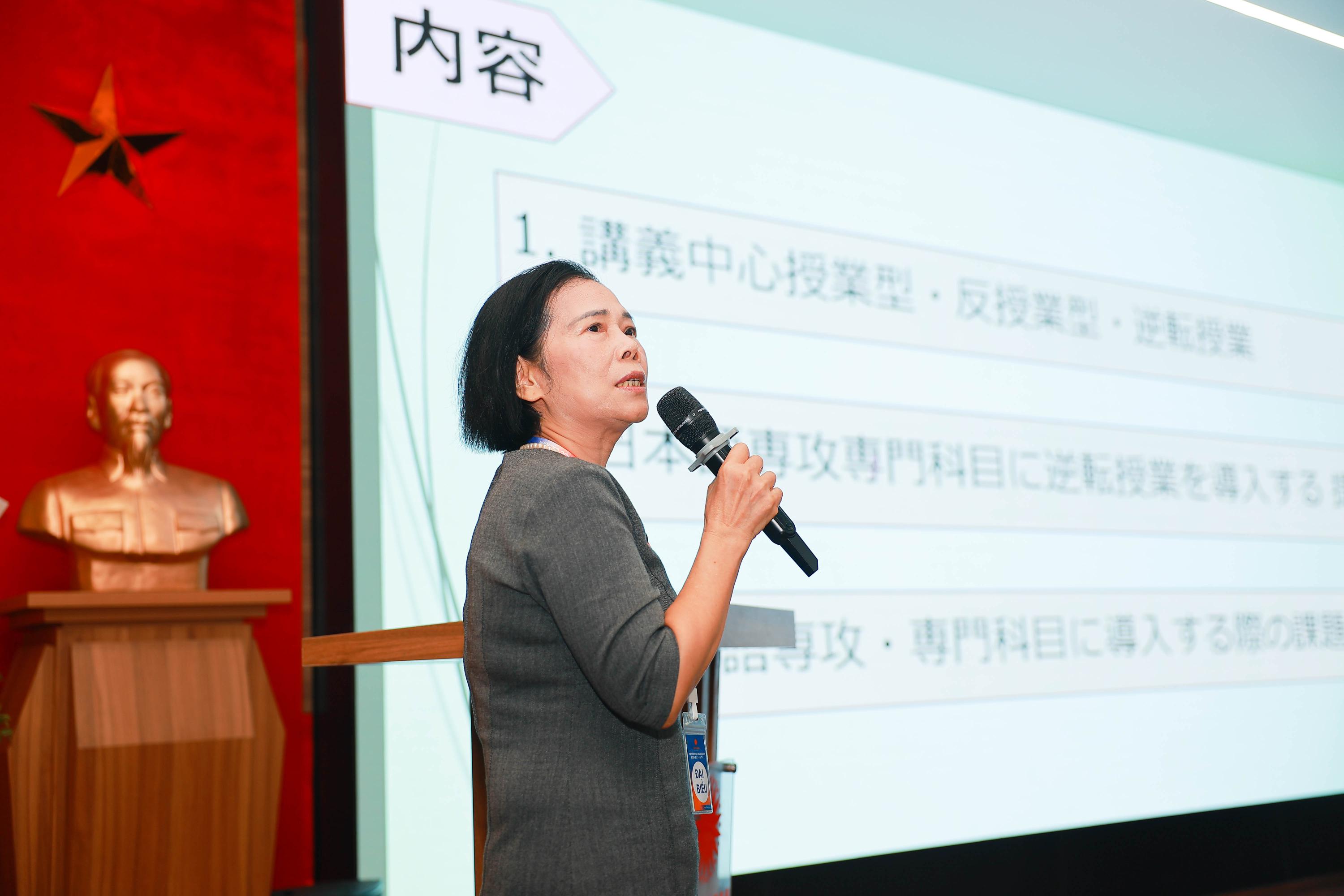
Associate Professor, Dr. Tran Thi Chung Toan - Head of Japanese Language Department, Dong Do University shared her paper "Applying flipped lessons to teaching Japanese majors".
Dai Nam University promotes the application of digital technology in teaching
With the presentation “Training and teaching Japanese and Japanese studies at Dai Nam University in the digital age”, Dr. Vu Thuy Nga provides an overview of teaching methods at Dai Nam University.
The development orientation of Dai Nam University is to internationalize education, train students to become global citizens, and open up international job opportunities for students. Therefore, the school strives to promote foreign language, technology, and soft skills training for students to develop comprehensively, meeting the increasing demands of society.
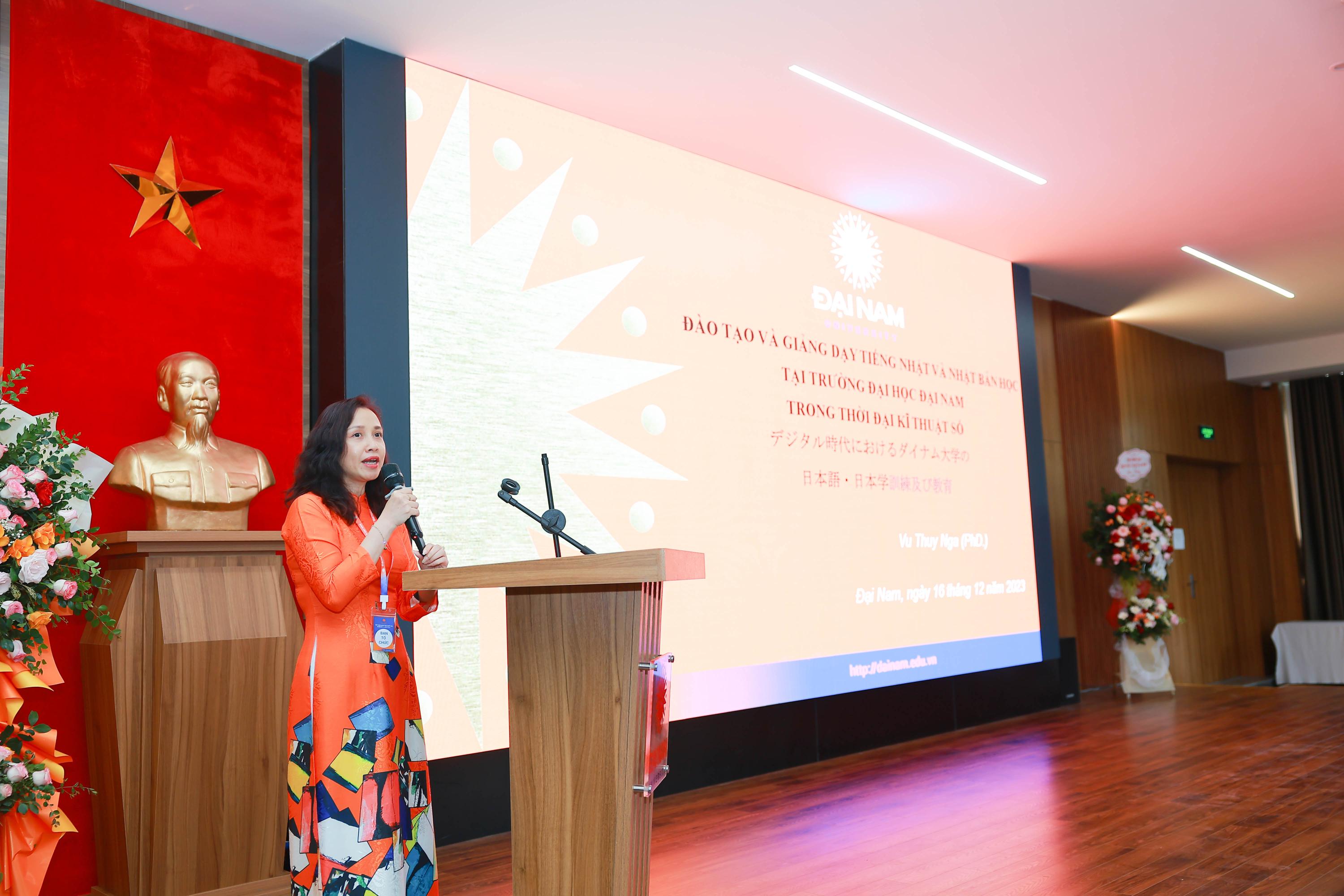
Dr. Vu Thuy Nga affirmed: Dai Nam University has been promoting the application of technology in teaching Japanese.
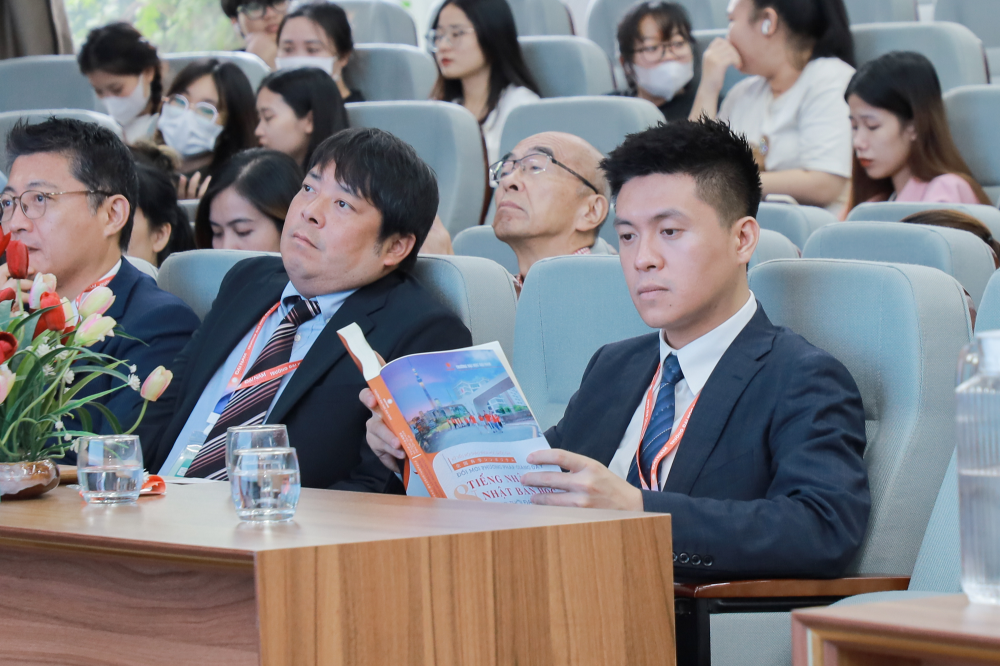
At the same time, Dai Nam University promotes the training model connecting schools - businesses - society; enhances practical experience, practice and internship activities for students. Ensures that students have access to specialized software, grasp the operating processes of Vietnamese and international businesses right from when they are still in the classroom; creates all conditions for students to participate in the Internship program in Japan, study and manage on online software...
Accordingly, students of the Japanese Language and Culture Department from the second year have Japanese language proficiency at N3 or higher; currently, more than 50% of the students of the department are sent to Japan for paid internships under the Internship program by Japanese enterprises who come to the school to interview and recruit. Recently, 20 students of the Japanese Language and Culture Department have been successfully recruited into the leading Japanese resort group KPG Hotel & Resort.
This is the result of Dai Nam University's efforts in digital transformation, applying technology and active teaching methods to teaching & learning. Specifically, lecturers are trained to use teaching support tools, design lecture slides on learning management software; actively use teaching support applications such as Quizlet, Kahoot... to create a vibrant atmosphere, increase learning inspiration. Enhance teamwork activities, improve self-study and lifelong research skills for students according to the school's orientation. Teachers use software to proactively and regularly manage, test and evaluate students.
Dai Nam University will have many practical scientific products to serve the work of improving training quality.
Mr. Vu Thanh Binh - Deputy Director of the Department of Science, Technology and Environment - Ministry of Education and Training shared: "With the right direction, I believe that in the coming time, Dai Nam University will have many practical scientific products to serve the work of improving the quality of training and scientific research of the school, increasing scientific publications to contribute to the development of Vietnam's science and technology potential according to the Strategy of science, technology and innovation to 2030".
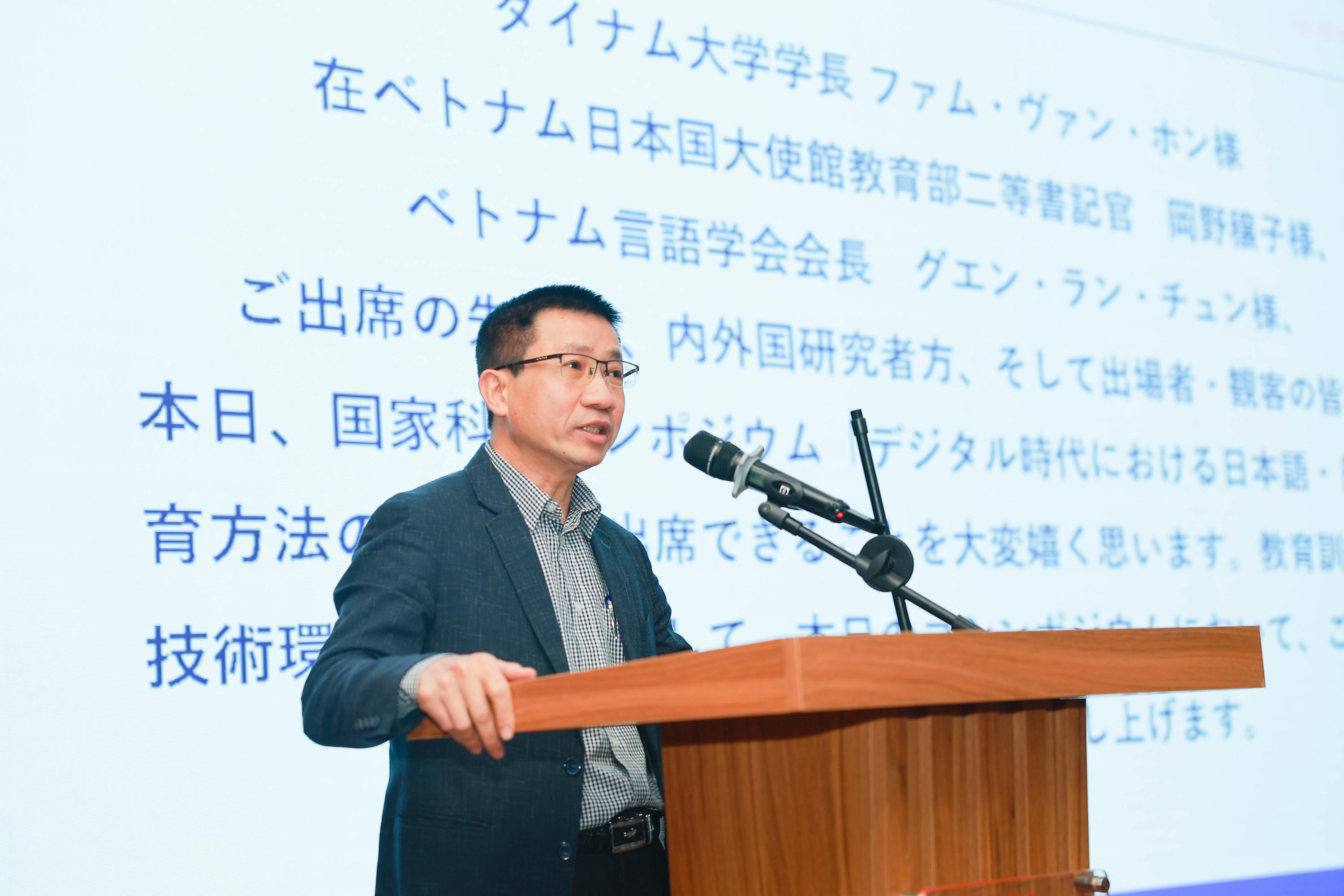
Mr. Vu Thanh Binh highly appreciated the training orientation of technology application and promoting scientific research of Dai Nam University.
Mr. Nguyen Lan Trung - Chairman of the Vietnam Linguistics Association said: Work-based learning is an ideal learning model for students to acquire new knowledge and trends. With close relationships with many Japanese government organizations in Vietnam, Vietnamese representative agencies in Japan; Dai Nam University not only helps students have many opportunities to access and learn about Japanese culture, expand their personal knowledge but also increases internship opportunities in Japan; there are many different sources of scholarships to support students during their studies.
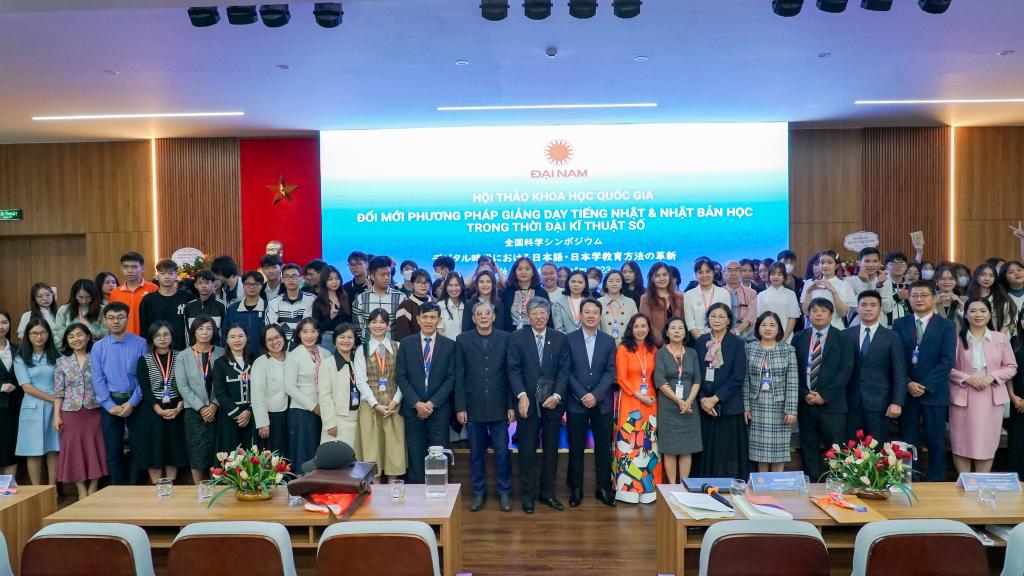
Speakers and scientists take souvenir photos.
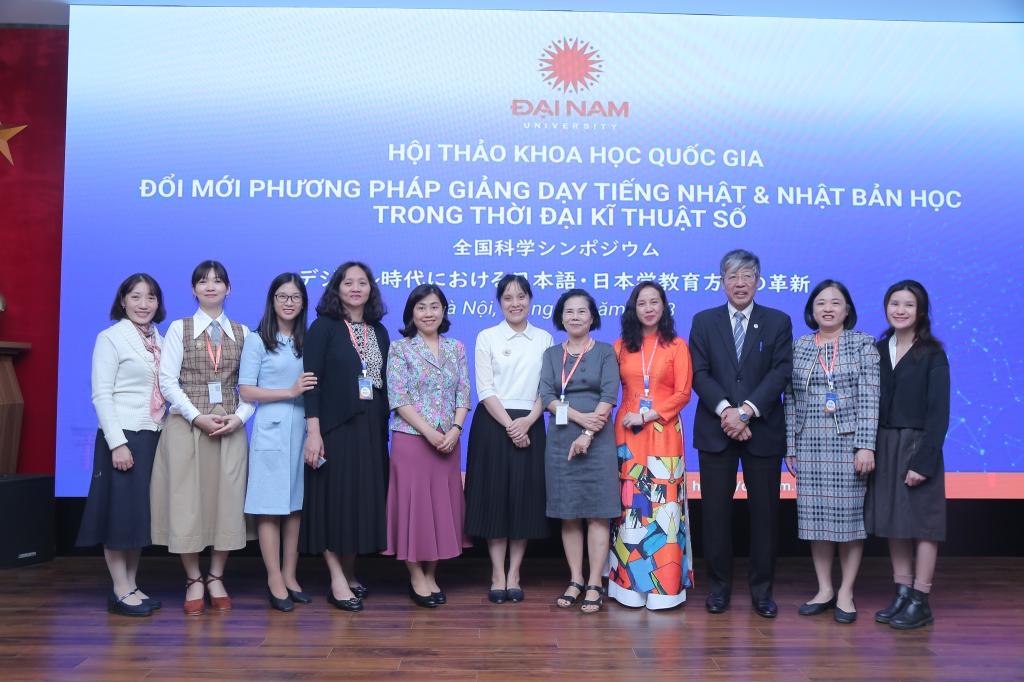
The national scientific conference “Innovation in teaching methods of Japanese and Japanese studies in the digital age” is truly a bridge connecting experts, scientists, lecturers and students. The conference has left its mark through useful knowledge, experience and in-depth perspectives from experts of the Ministry of Education and Training, leading professors and doctors in the field of research and teaching of Japanese and Japanese studies shared at the conference. This will be an important “key” for universities, academies, research institutes, etc. to further improve the quality of Japanese language training in the coming time.
BTT
Register for admission consultation 2025
scholarships and tuition support worth up to 55 billion VND

scholarships and tuition support worth up to 55 billion VND

